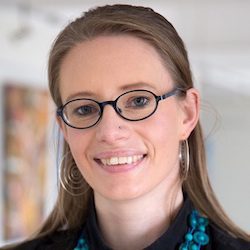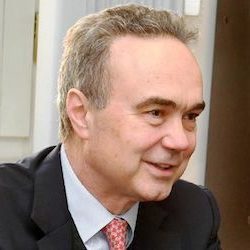Can we learn diplomacy from books? This is the main question for the next WebDebate, which will be addressed by two practicing diplomats with rich experience in diplomatic training: Mr Stefano Baldi, Minister Plenipotentiary and Training Director, Ministry of Foreign Affairs and International Cooperation of Italy, and Ambassador Milan Jazbec, Ministry of Foreign Affair of Slovenia. Join us with comments and questions on future of diplomatic training.
[Update] Read the follow-up blog post and watch the recording from the May WebDebate:

If you missed the April WebDebate, the recording is also available:

Diplomatic training has been transformed by technology: diplomats now have access to vast amounts of information and resources, and diplomatic training can be conducted online. Other aspects, such as new approaches in knowledge management and the range of new skills diplomats need to learn, have also changed how diplomatic training is conducted.
Join us on Tuesday, 3rd May, at 11:00 UTC, for a discussion on the future of diplomatic training. Experts will present different perspectives during a debate moderated by Dr Katharina Höne from DiploFoundation.
The WebDebates on the future of diplomacy are livestreamed on the first Tuesday of every month. They are organised by DiploFoundation within the framework of the International Forum on Diplomatic Training (IFDT). Learn more about our series of WebDebates.
If you form part of a dynamic circle of diplomacy practitioners in your community, we encourage you to establish a diplomatic hub to follow the WebDebates and to facilitate discussions. For more information, contact Ms Mina Mudric, DiploFoundation.
Further readings
For background readings, consult:
- World Economic Forum: What are the 21st-century skills every student needs? (Article)
- Professor Dietrich Kappeler: Knowledge management and diplomatic training – new approaches for training institutions (Paper)
- Ambassador Joseph Cassar: Diplomatic training (Podcast)
Stefano Baldi is a career diplomat at the Italian Ministry of Foreign Affairs and International cooperation. Currently, he is Training Director in charge for the Training of the Ministry since 2011. He was previously Head of the Science and Technology Cooperation Department of the Ministry of Foreign Affairs from 2010 to 2011. From 2006 to 2010, he was First Counsellor at the Permanent Mission of Italy to the EU, responsible for legal and financial aspects of the Common Foreign and Security policy. He has been the first head of the Statistical Office of the Ministry from 2000 to 2002. He has also served at the Permanent Mission of Italy to the International Organizations in Geneva and to the Permanent Mission of Italy to the United Nations in New York. His most recent research focuses on diplomatic management, social media for international affairs and books written by diplomats. He is author of more than 15 books. He is also a full member of the Italian Statistical Society and a Senior Fellow of DiploFoundation. Mr Baldi is responsible for the blog on training, Diplo Learning corner.
Dr Milan Jazbec is Professor of Diplomacy at the University of Ljubljana and former Ambassador of Slovenia to Turkey, accredited also to Azerbaijan, Iran, Iraq, Lebanon and Syria (2010-2015). He is author of 15 books on diplomacy that appeared in four languages, and more than one hundred articles. Former State Secretary for Defense Policy at the Slovene Ministry of Defense (2000–2004) and Policy Planning Director at the Ministry of Foreign Affairs (2006–2010). Topics of special interest: sociology of diplomacy, postmodern diplomacy, history of Slovene diplomacy, diplomacy and literature, diplomacy for teenagers. Lectured at various universities, like Columbia New York, Diplomatic Academy of Vienna as well as visiting professor in Ankara at Bilkent University, Middle East Technical University and Ankara University. Holds Austrian Grand golden decoration of honor with star for the merit of the Republic of Austria. Employed at the Slovene Foreign Ministry and teaches diplomacy at the Graduate School of Governmental and European Studies in Kranj.





